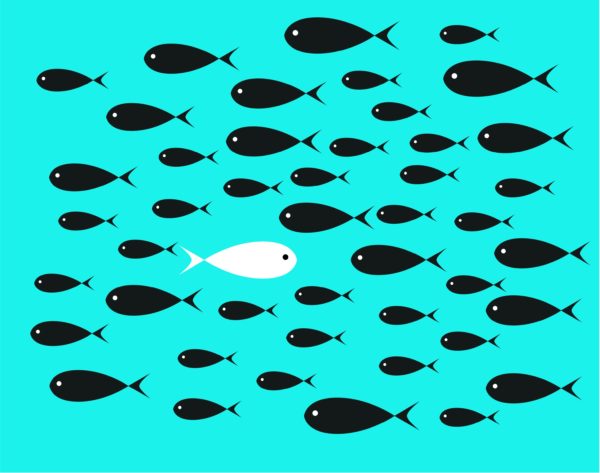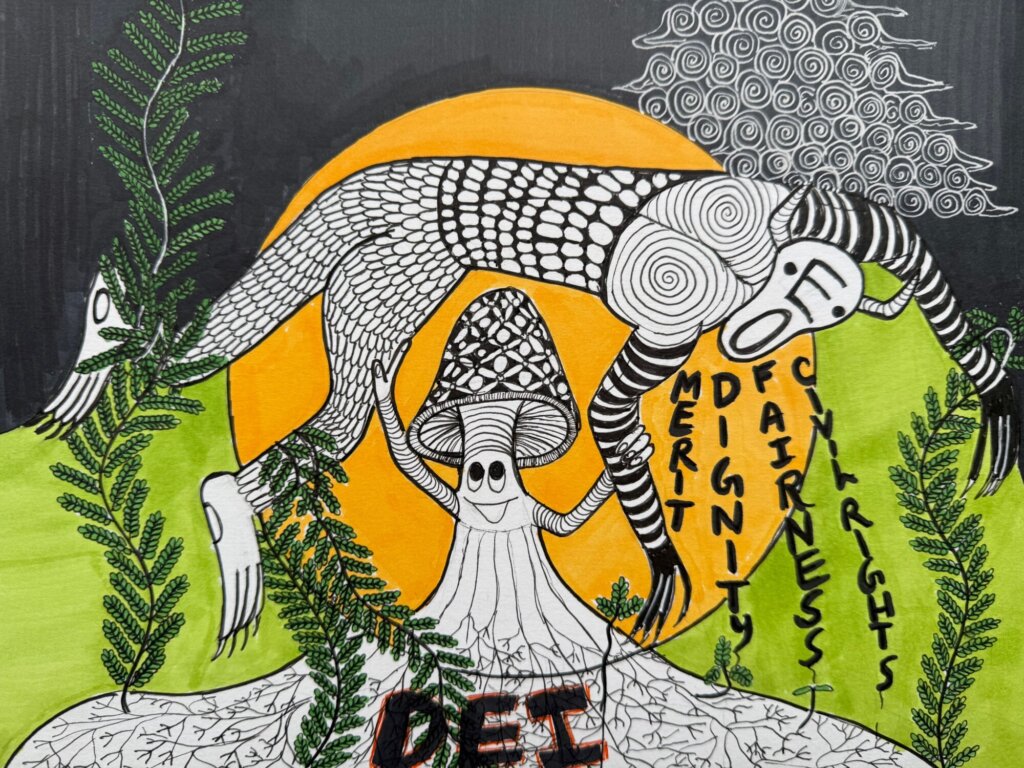Ava
Published on
06 - 15 - 2016
Ava
Published on
06 - 15 - 2016

We are in the middle of our busiest month, where we are scheduled to give 12 days of workshops for 10+ organizations. We’re about half way through and have noticed one common theme in the questions we are asked. Many of our partners and participants want to know: do reverse _____isms exist? That is, can a women be sexist against a man? Or can a person of color be racist? Though the questions are all slightly different, we always give a similar answer, which is: “No. Reverse ‘-isms’ do not exist.”‘
Of course a simple “no” is not enough to answer this important question, so I’ll share how we generally answer this question and then provide some links to other folks who have answered this question because we’re certainly not the first, and probably not the last, to address this question.
Power + Prejudice:
So, why does reverse ____-ism not exist? Our explanation always begins with explaining two different concepts: prejudice and power structures. Prejudice in its most literal form is “pre-judgement” or judging a person or a group of people based on a small amount of information, often a perceived identity like race, gender, and physical dis/ability. We know that everyone can have prejudice toward anyone else, which can result in poor relationships, toxic work environments, and tense partnerships.
Next we talk about power structures; because of current and historic power structures, there are communities that have been continually disadvantaged throughout history and up to this very moment. We see evidence of these systems of power in statistics around unequal access to healthcare and education, in unequal pay, in net worth, in criminal justice , in the green sector, and so much more. So, in the context of systems of power, prejudice not only functions to create poor relationships, toxic work environments, and tense partnerships, but it also supports, condones, and perpetuates the power structures described above, and more. In short, we say that the recipe for an ‘-ism’ is power + prejudice.
So when someone asks, for example, why our definition of a microaggression specifies that they are only geared toward marginalized identities, we say it is because all of those subtle, often unconscious comments and actions reinforce a system that we are actively trying to dismantle.
Of course, this isn’t the only way to describe why reverse -isms don’t exist. Here are a few other articles and videos that touch on the issue of reverse -isms:
“Why Reverse Oppression Simply Cannot Exist (No Matter What Merriam-Webster Says)” Melissa A. Fabello
“When You’re Accustomed to Privilege, Equality Feels Like Oppression” Chris Boeskool
“Fear of a Brown Planet” (comedy routine) Aamer Rahman
Dear Avarna community, We’re only four months into four years of this presidential administration, and the attacks on everything our…
Read full post about Staying the Course: On EOs, Education, ERGs, and SailingAvarna Community, It is with nearly all the emotions you might find in an emotions wheel that I am announcing…
Read full post about Farewell, AvarnaThe current administration’s anti-DEI Executive Orders have sparked varied responses in the nonprofit and private sectors—some organizations are defending DEI…
Read full post about DEI Jujitsu: Flipping the Backlash to Reframe Our Work

